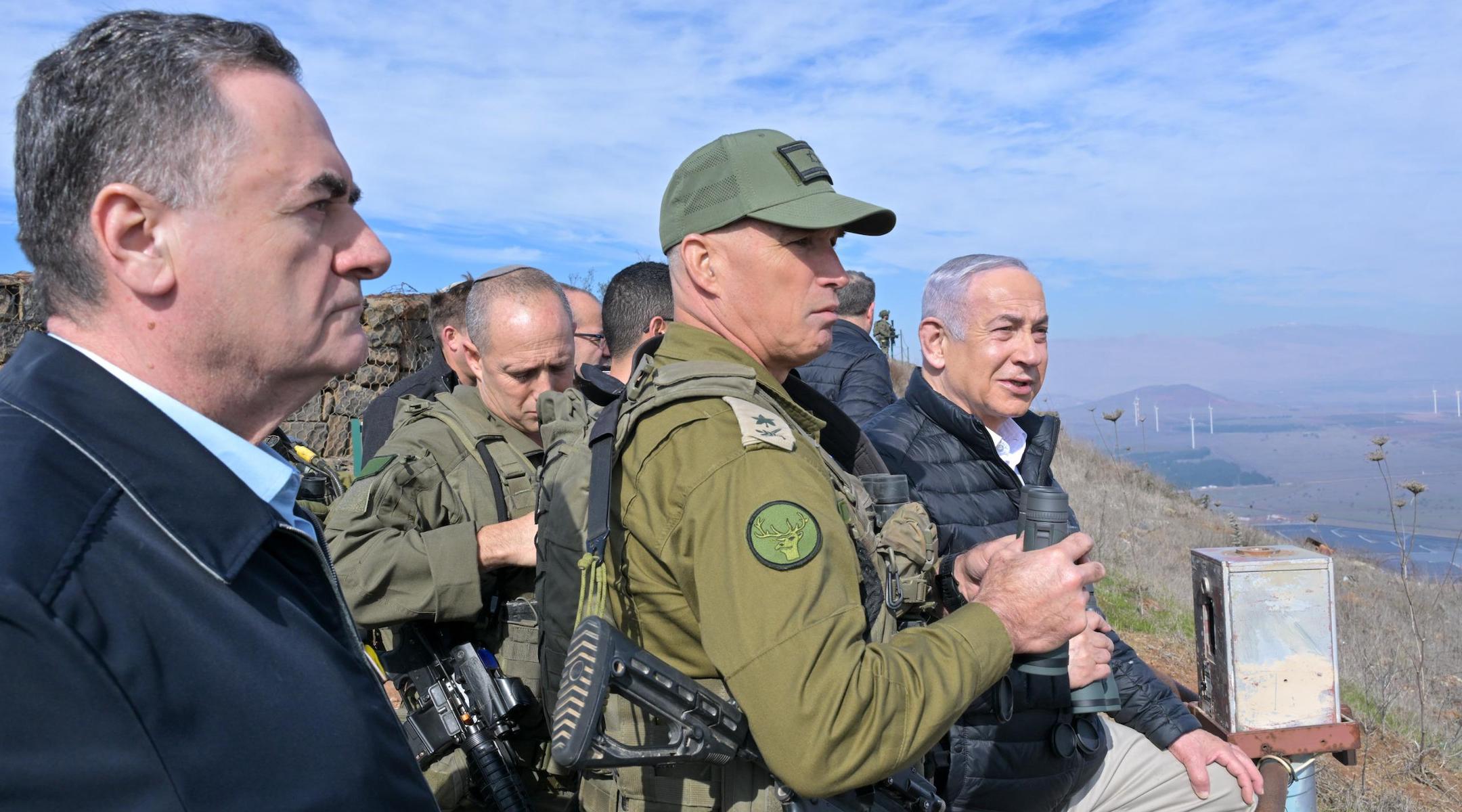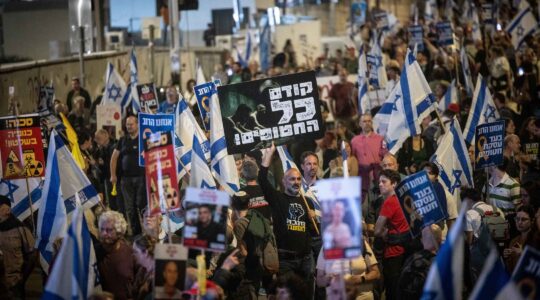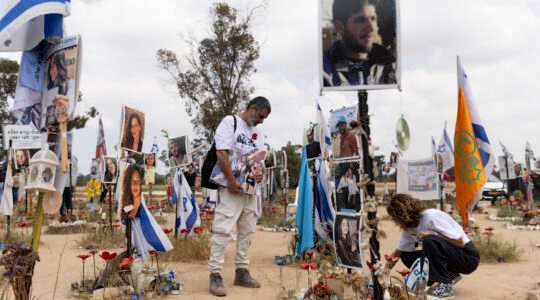Israeli Prime Minister Benjamin Netanyahu entered Syria on Tuesday, visiting Israeli troops who have been stationed there since the fall of Bashar al-Assad’s regime earlier this month.
His visit came as leaders of the rebel group that ousted al-Assad and has taken power in Syria say they do not want a conflict with Israel — but that the Israelis need to stop bombing inside Syria and leave the country.
“Israel’s justification was the presence of Hezbollah and Iranian militias, so that justification is gone,” Ahmed al-Sharaa, the leader of the group Hayat Tahrir al-Sham or HTS, told the Times of London on Monday.
“We do not want any conflict whether with Israel or anyone else,” he said, adding, “We will not let Syria be used as a launchpad for attacks. The Syrian people need a break, and the strikes must end and Israel has to pull back to its previous positions.”
Israeli troops entered a demilitarized zone on the border with Syria as the Assad regime fell and have been bombing sites where Bashar Assad is believed to have massed weapons, including weapons of mass destruction. The zone was created under a 1974 agreement that Israel says it could not depend upon Syria anyone inside Syria to uphold.
Netanyahu said the strikes were aimed at taking out the weapons depots in part to keep Hezbollah, the Lebanon based terrorist group, from accessing them. Iran, Israel’s deadliest enemy and Hezbollah’s main backer, used its alliance with Assad’s Syria to funnel weapons to the group.
Israel recently agreed to a ceasefire in its war with Hezbollah in Lebanon after a campaign that is understood to have seriously weakened the terror group’s weapons stores. The current campaign in Syria, Netanyahu said on Sunday, was meant to prevent Hezbollah from rearming.
“We have no interest in a conflict with Syria,” Netanyahu said at the time. “We will determine Israeli policy regarding Syria according to the reality on the ground.”
An unconfirmed report in Russian state media said that IDF troops had operated beyond the buffer zone. Israel is also responding to comments from some in the Druze community in the buffer zone who have reportedly said they would prefer to join Israel. The Druze live throughout the Golan Heights, the plateau Israel seized from Syria in the 1967 Six-Day War and annexed in 1981. On Sunday, Israel’s Cabinet approved Netanyahu’s plan to double the population of the Golan Heights, which the United States is the only country besides Israel to recognize as Israeli territory.
During his visit to the Syrian side of Mount Hermon on Tuesday, Netanyahu was joined by Herzi Halevi, the military chief of staff, and other officials. Defense Minister Israel Katz said the Israelis would maintain their presence in the zone for an undermined period — and also signaled skepticism about HTS, which has its roots in Al Qaeda.
“We will be here for as long as it is needed,” Katz said, according to a Times of Israel report. “Our presence here at the peak of the Hermon strengthens security and adds a dimension of both observation and deterrence to Hezbollah’s strongholds in the Beqaa Valley in Lebanon and deterrence against the rebels in Damascus, who pretend to present a moderate image but belong to the most extreme Islamic sects.”
Israel’s operations in Syria have implications that go beyond its relationship with the country’s new leadership. The mother of Austin Tice, an American reporter held in Syria more than a decade, wrote Netanyahu asking him to avoid bombing a prison near Damascus where she believes her son may be held, The New York Times reported Monday.
“We have no way of knowing if the prisoners there have food and water,” she said. “We urgently request you pause strikes on this area and deploy Israeli assets to search for Austin Tice and other prisoners. Time is of the essence.”
Gal Hirsch, an Israeli official, confirmed to the newspaper that the letter was received and that Israeli authorities were working with their American counterparts to identify and free Americans held captive in Syria.
There were conflicting reports that Israelis are trying to track the grave of Eli Cohen, the spy Syria executed in 1965. Israeli army officials told The Jerusalem Post that the reports are unfounded.
JTA has documented Jewish history in real-time for over a century. Keep our journalism strong by joining us in supporting independent, award-winning reporting.






